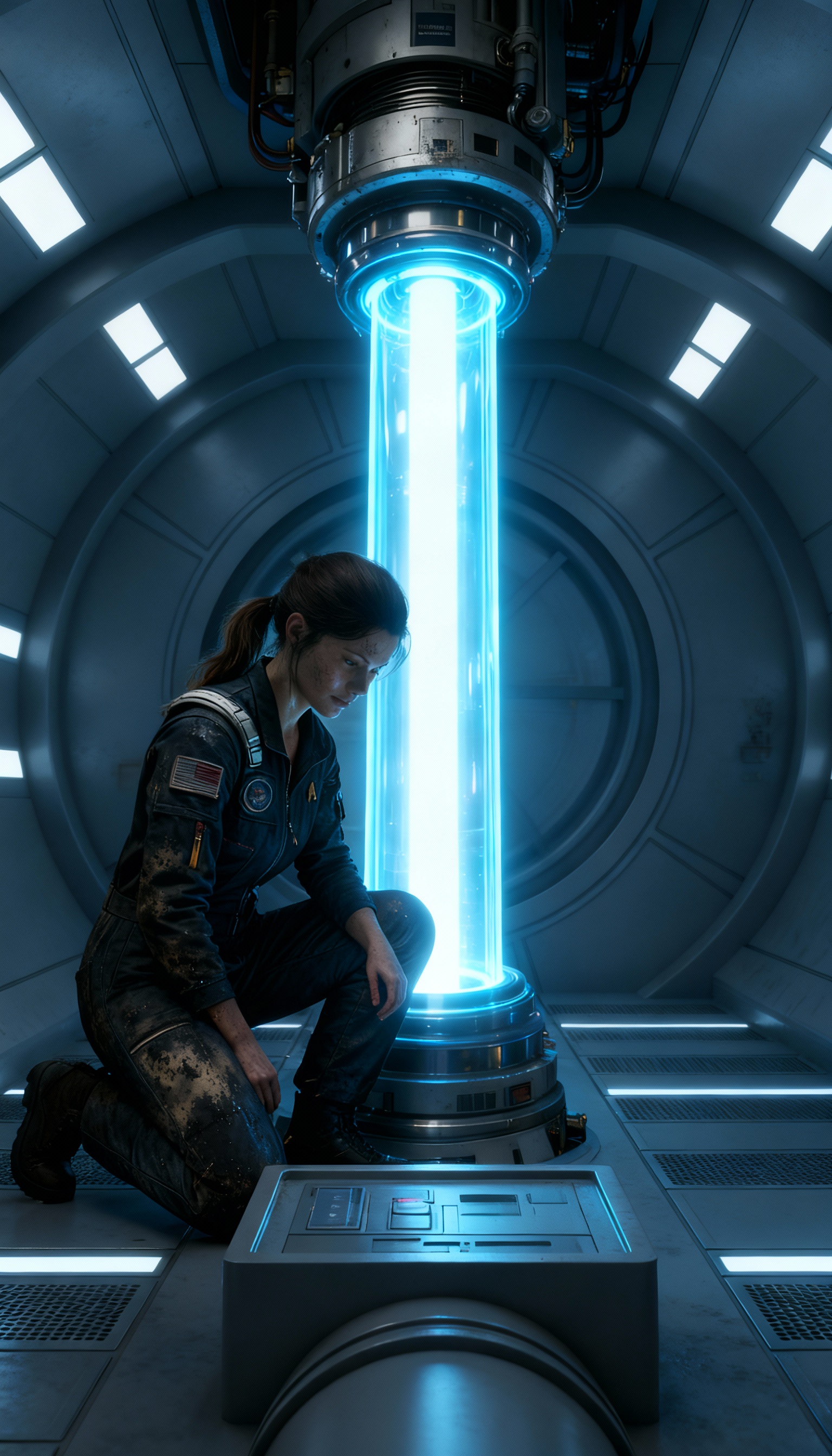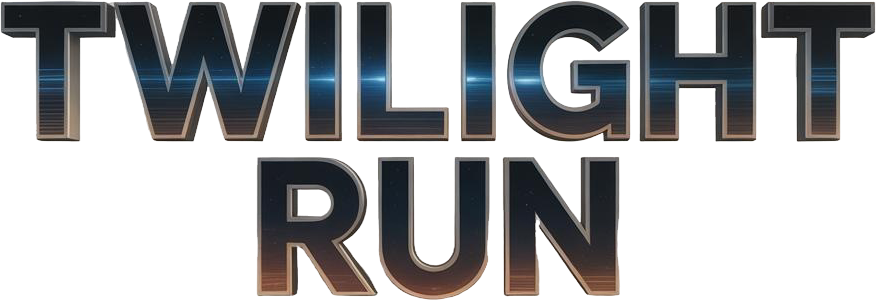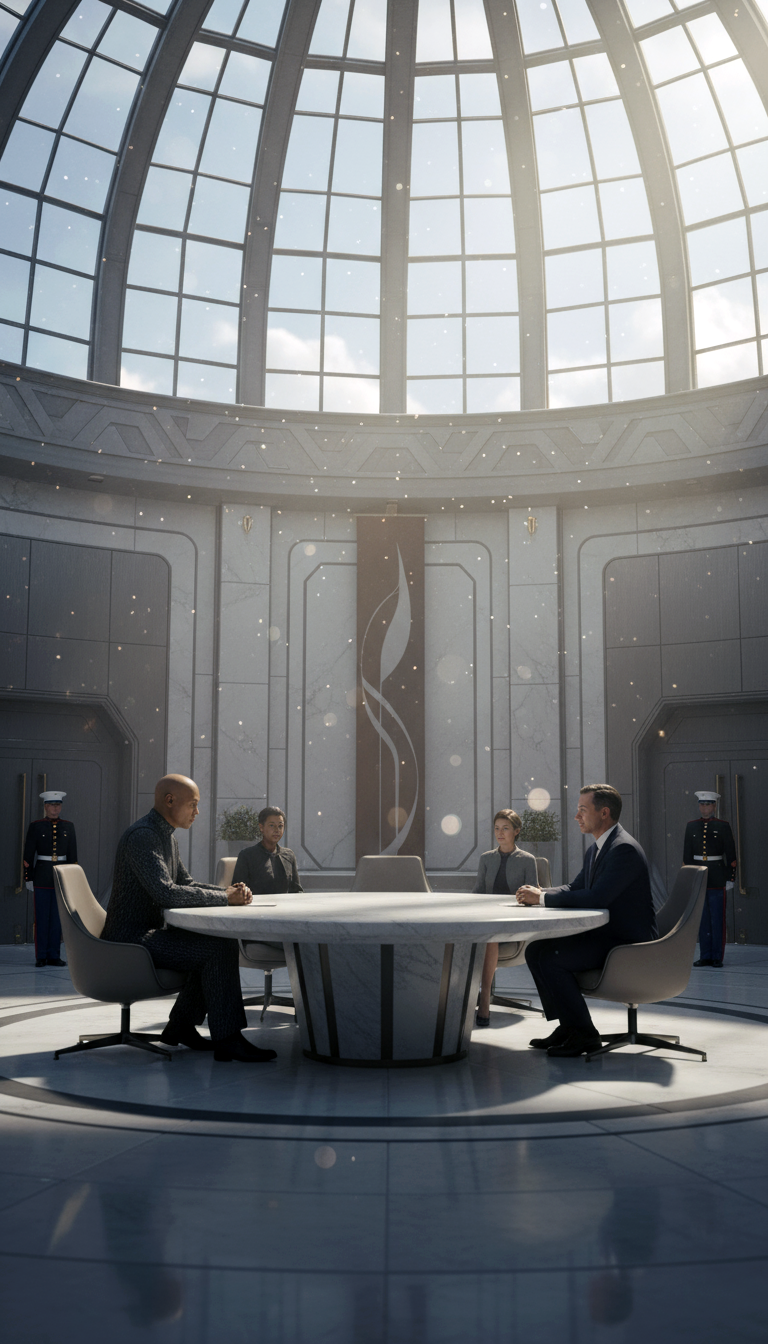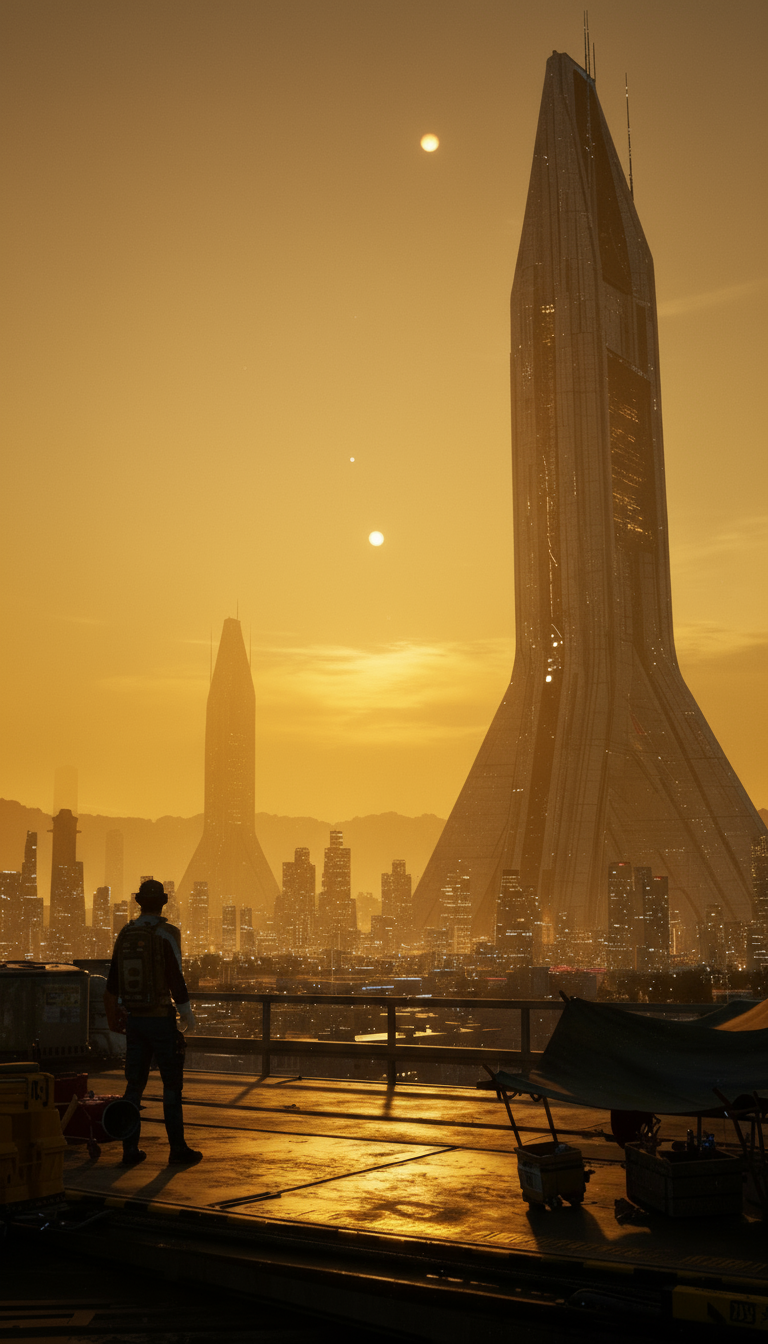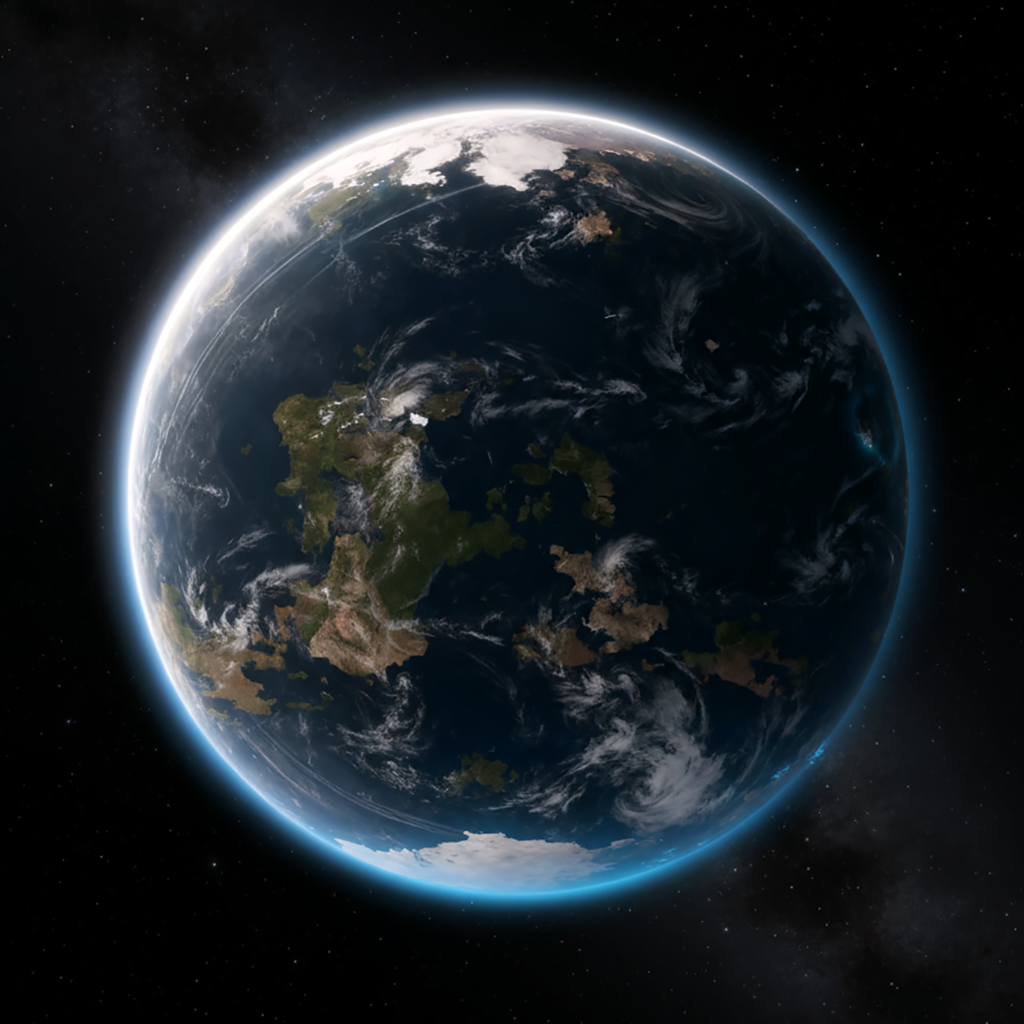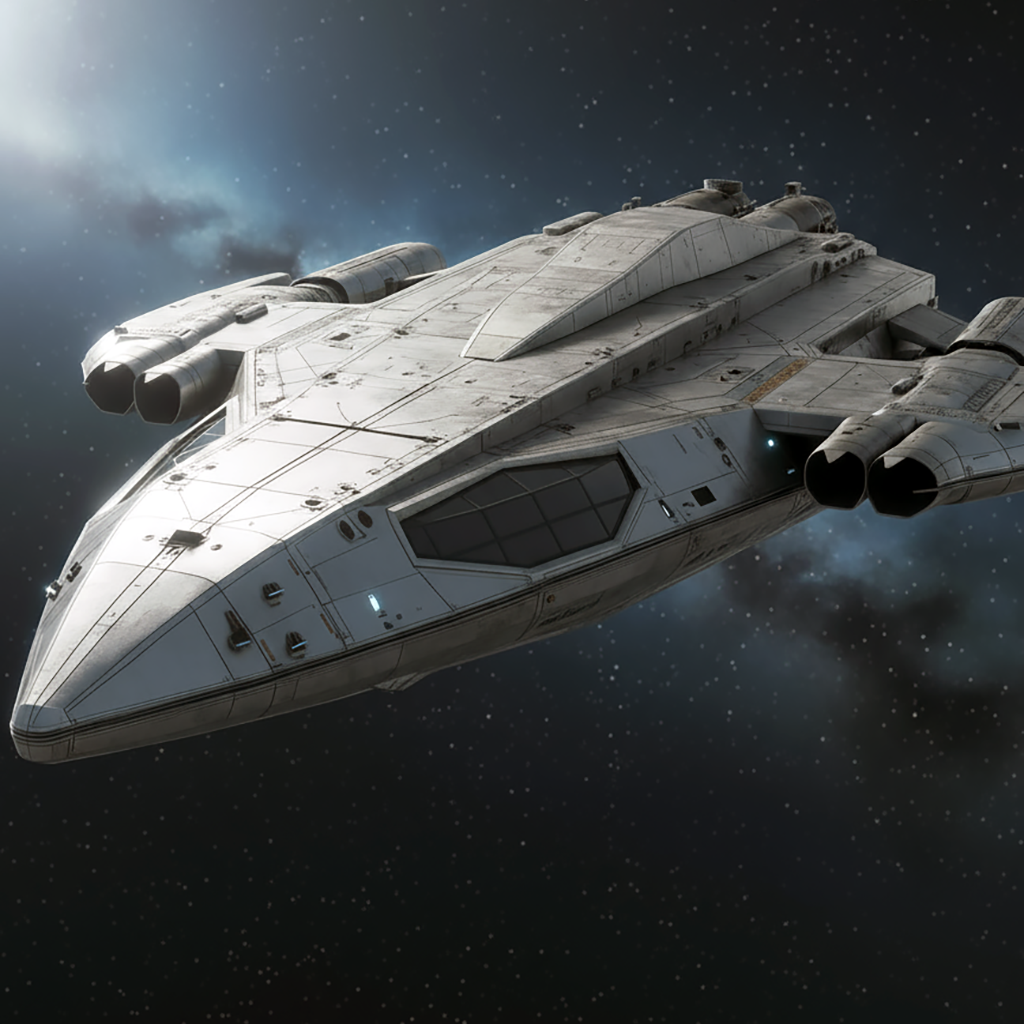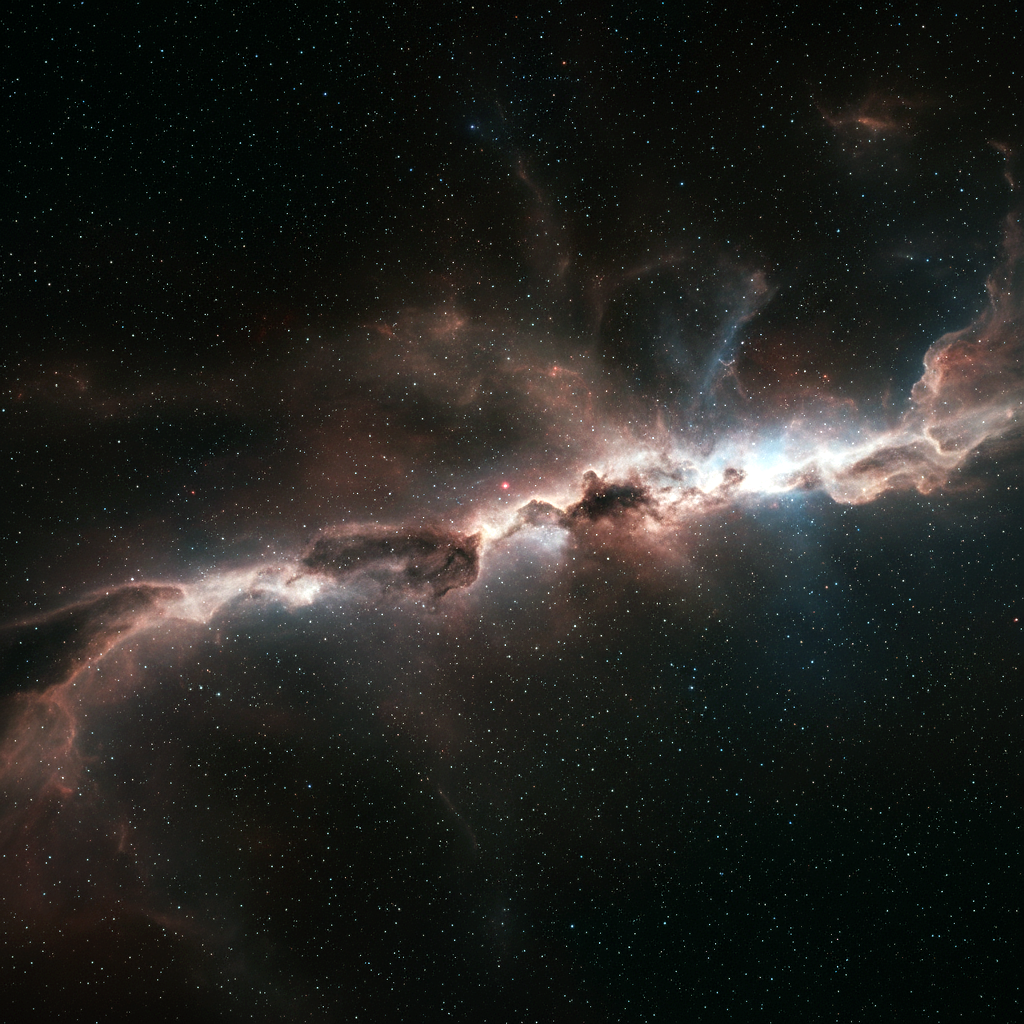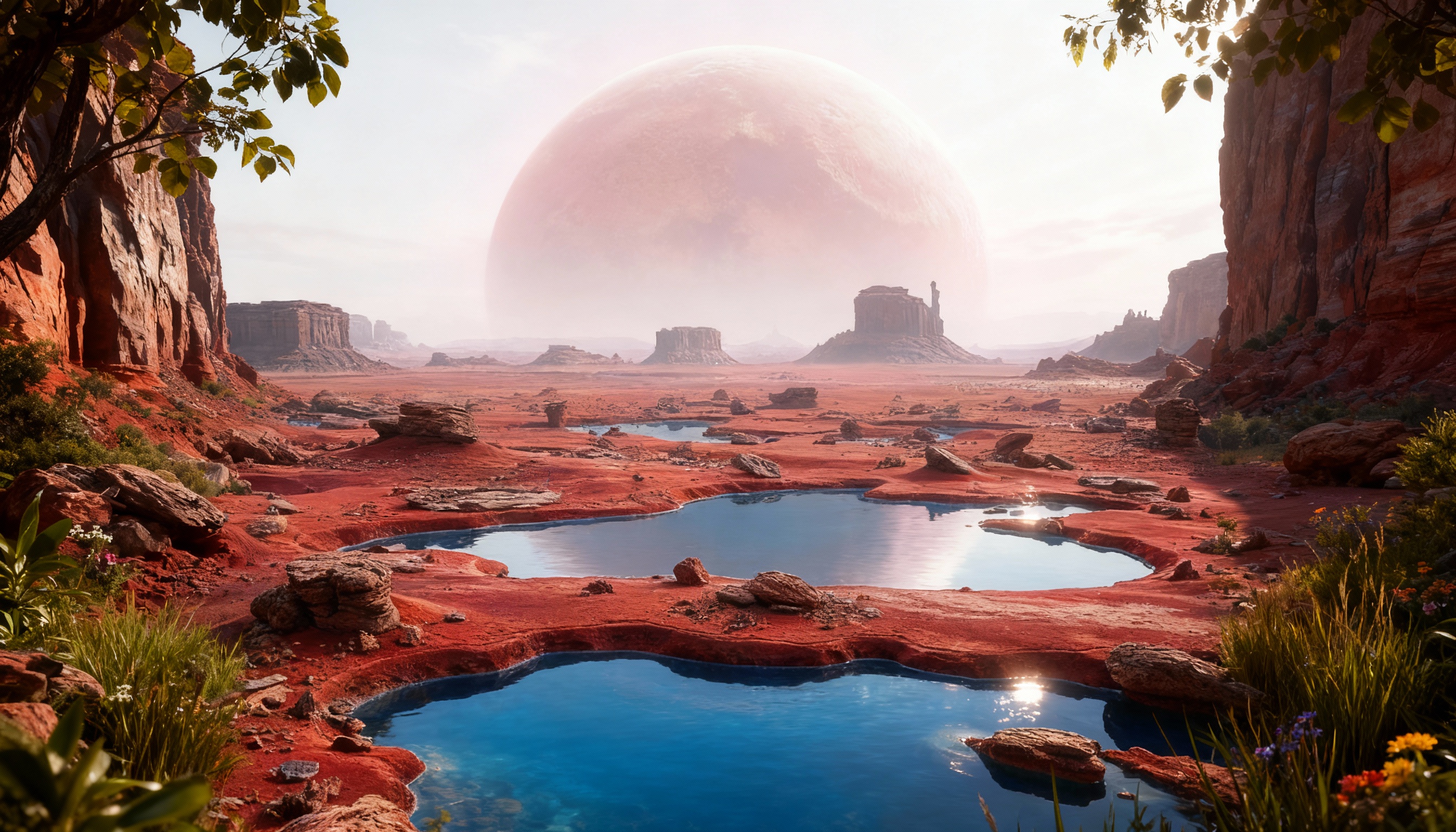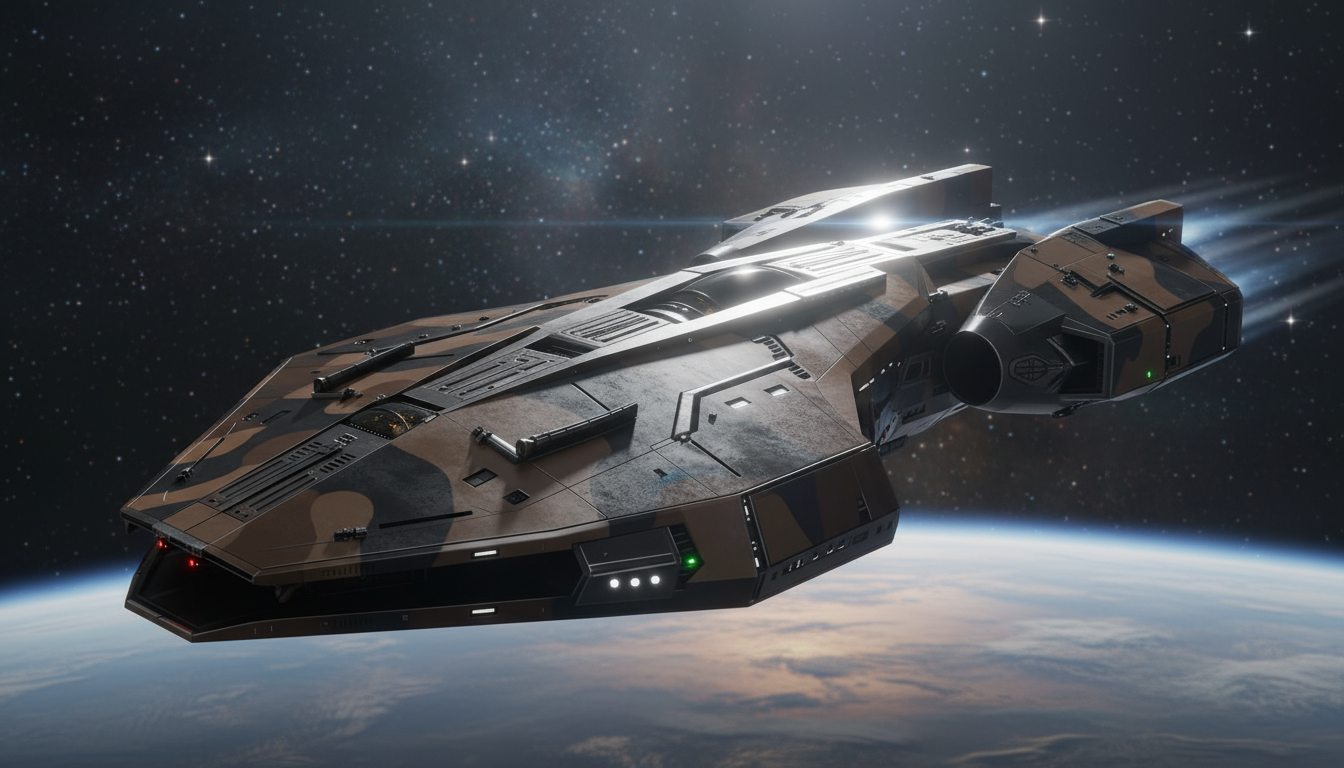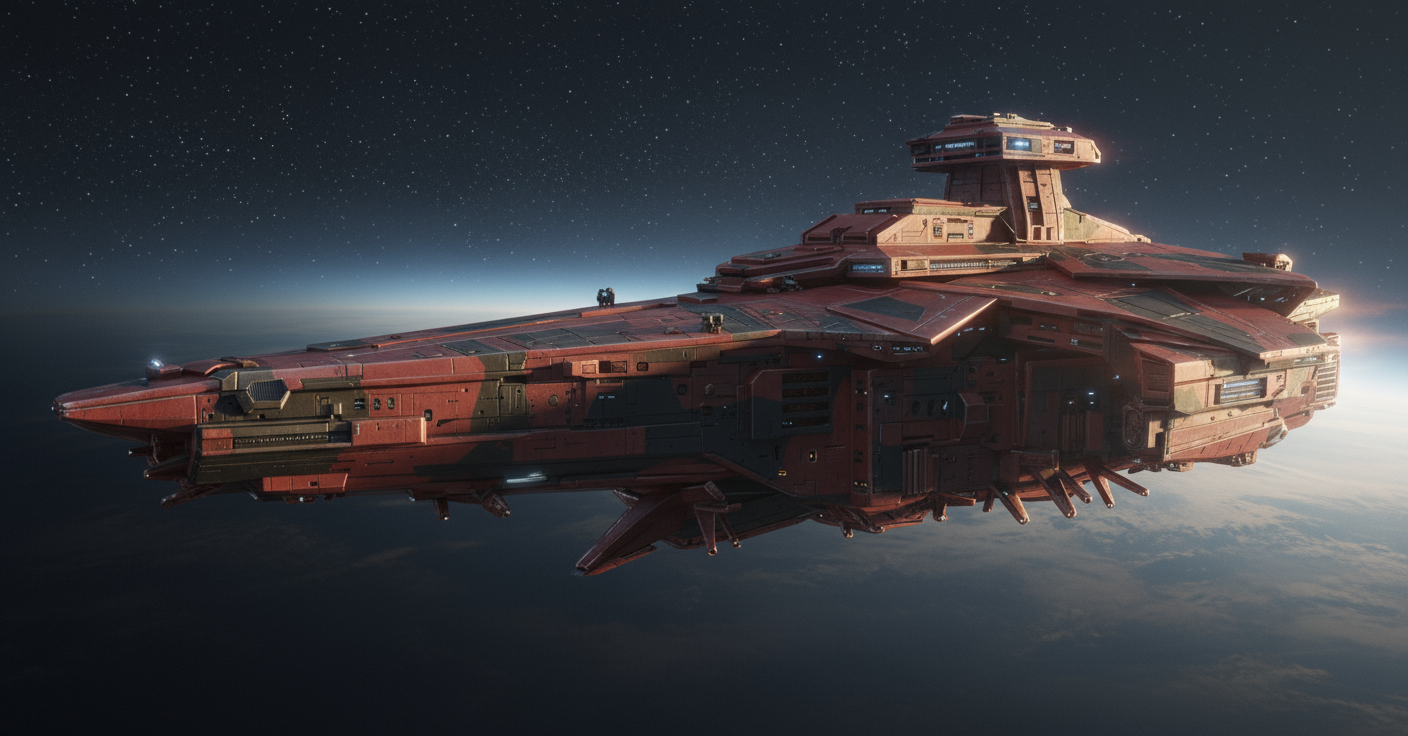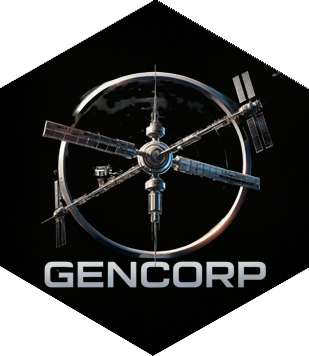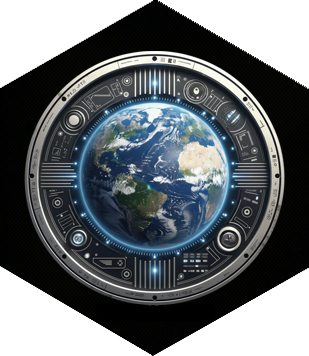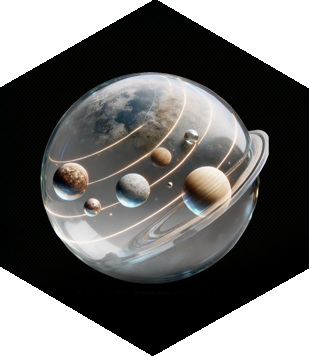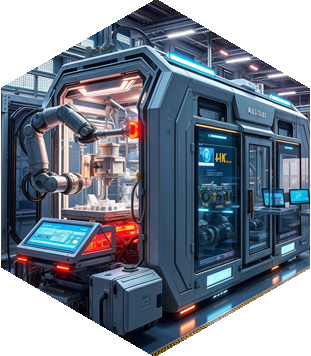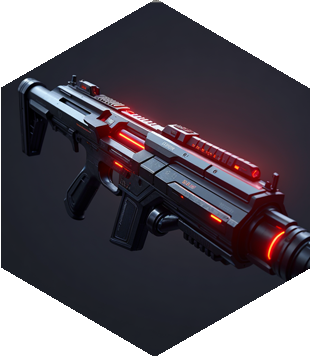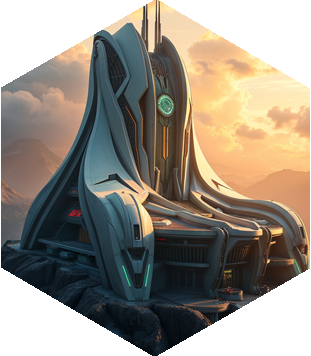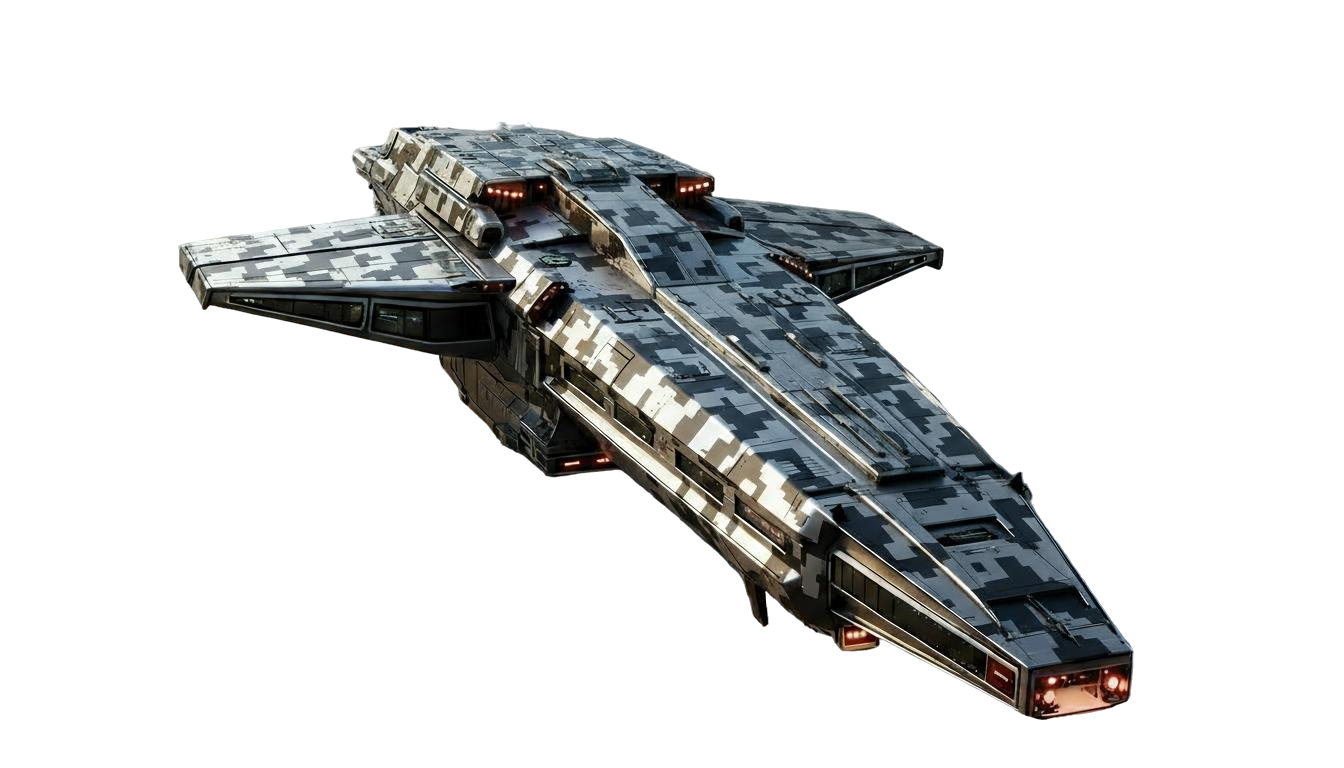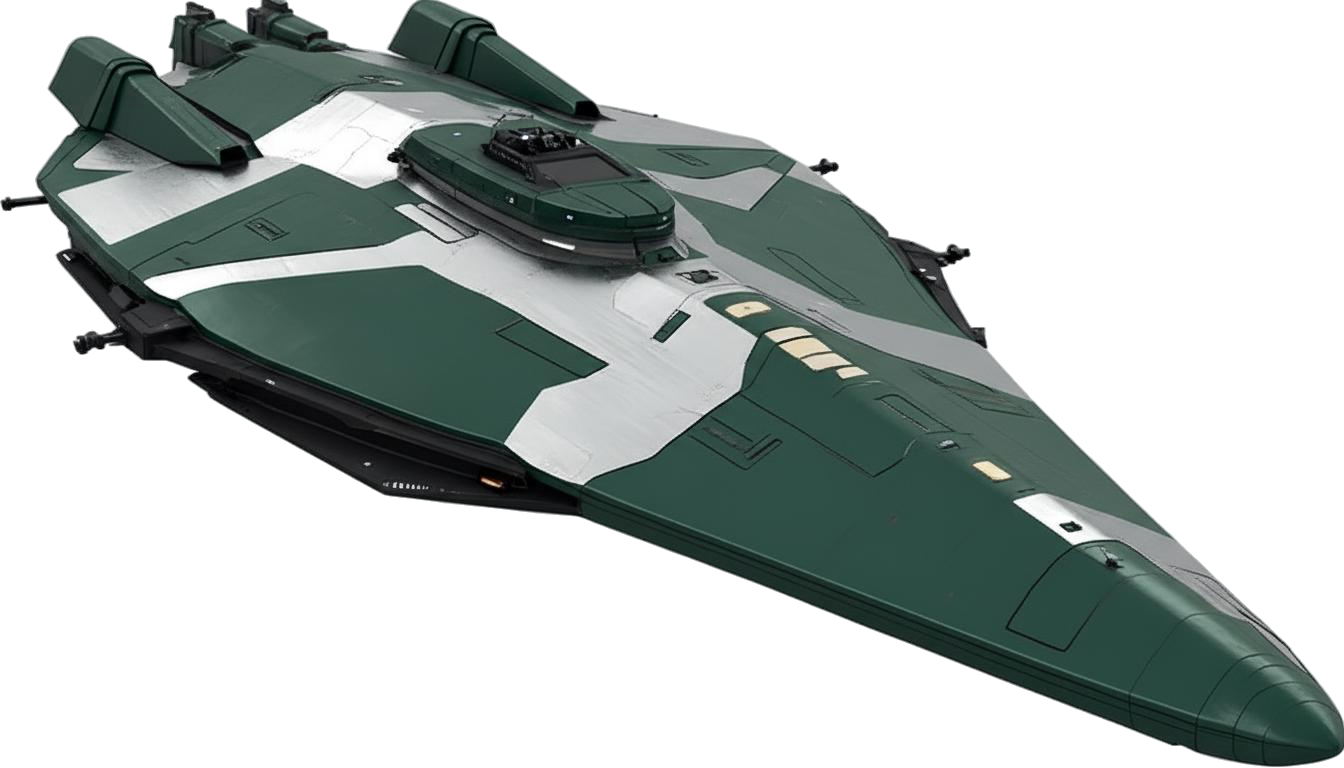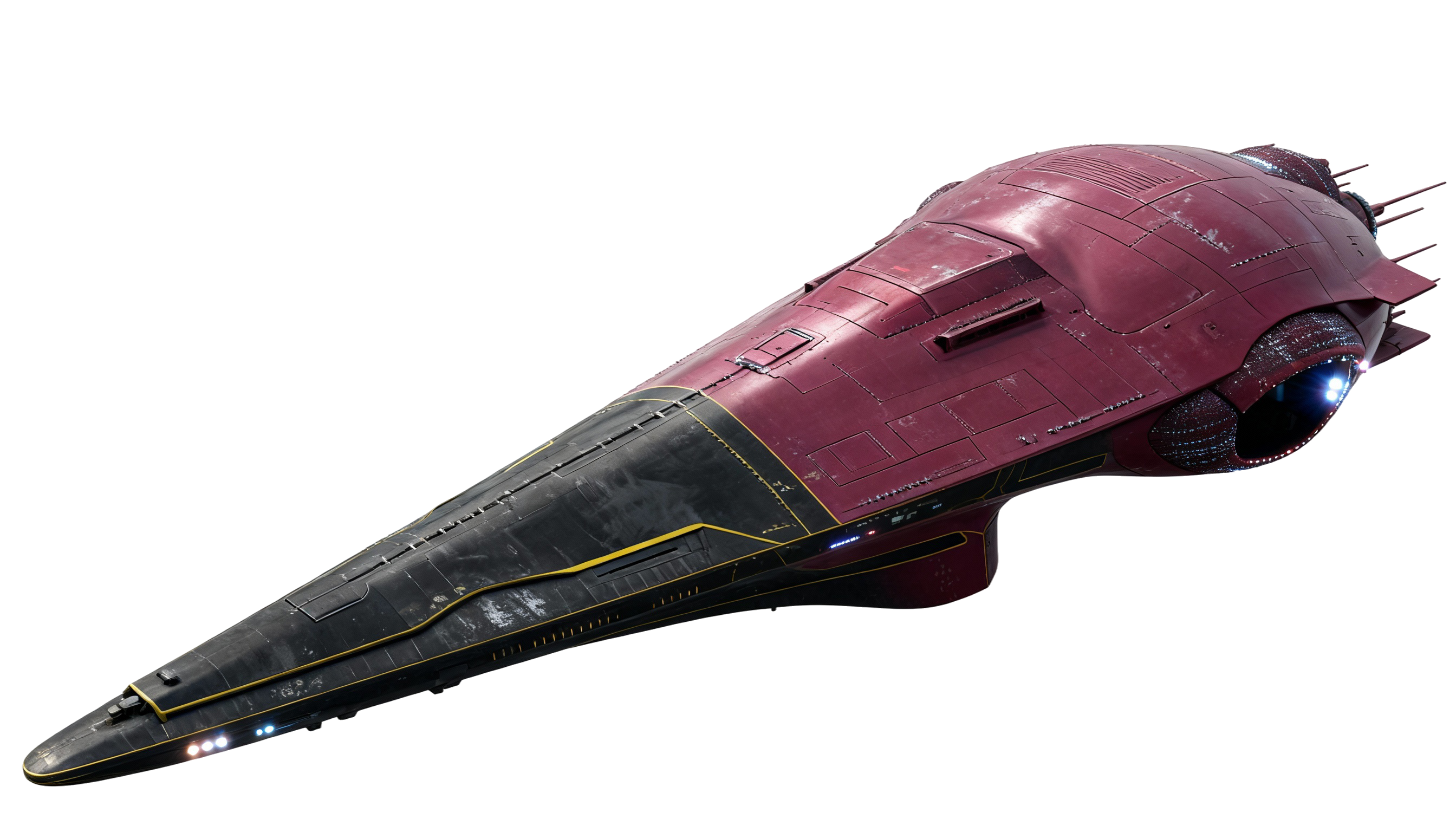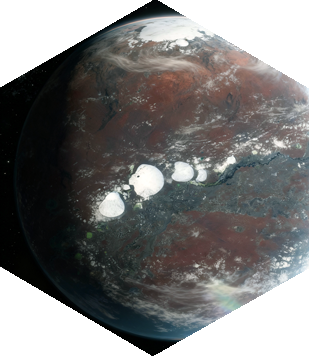Trader's League
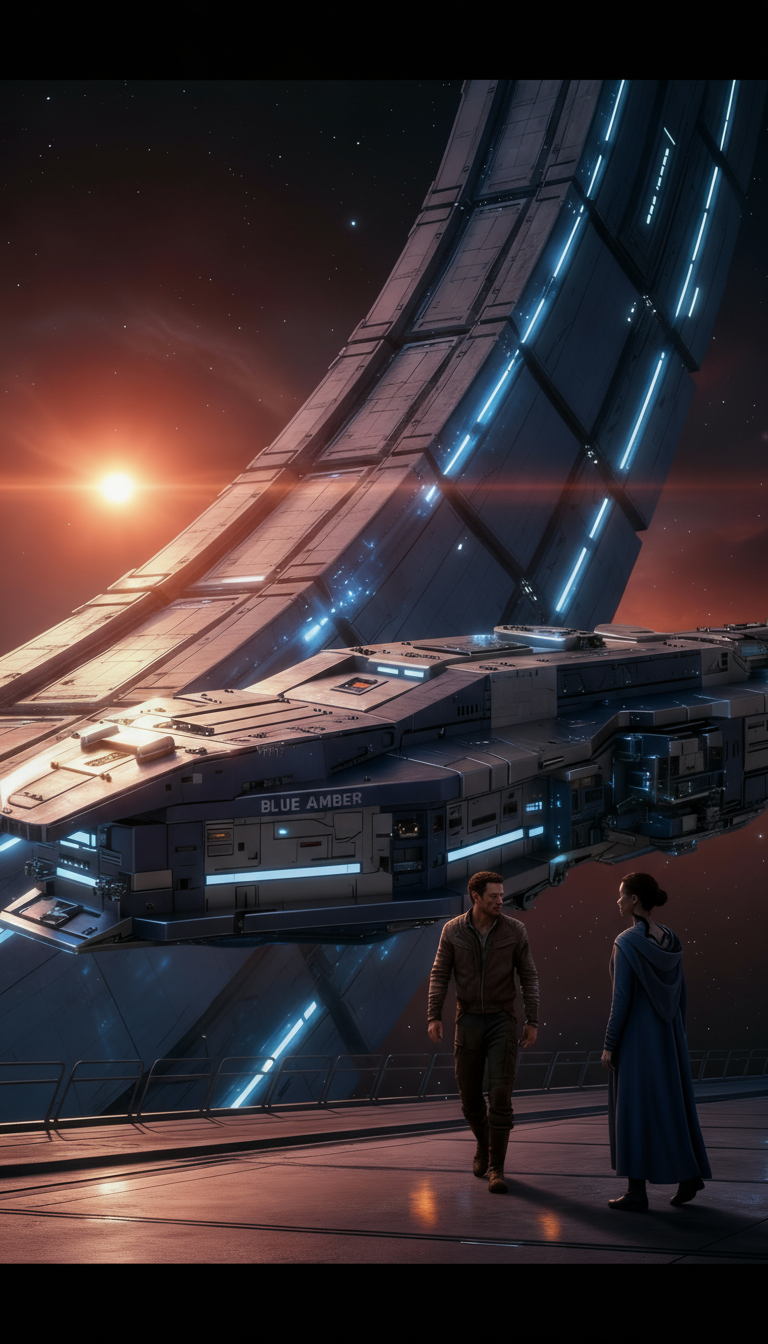
Day 1: The Directive
Dockside air always smells the same: ozone, grease, and desperation.
Cestisus adds polish to it—clean lines, pale stone, and port officials who move like clockwork—but under the ash-white tile and votive lamps, the same hunger ticks. People want what they can’t afford, to go where they shouldn’t, to live one month farther than their credit will allow. Ports are factories that stamp those wants into cargo. You strap them under your keel and pray your drives don’t cough mid-jump.
I brought the Blue Lantern in on a high, careful arc, bow thrusters tapping the station’s guidance like a blind man’s cane. The Consortium’s customs drones drifted close enough that my floodlights painted them in milk-blue halos. Their lens clusters clicked like insects tasting the air.
“Hold her steady,” I told Kez from the pilot’s couch. He’s built like a loading crate and twice as stubborn, with a scar across his scalp that puts people off until he grins. He kept us inside the docking spine’s swallow—and there it was, the gentle shudder and clamp: home, for as long as our dock lease held and no one decided we were more profitable as an impound.
The berth supervisor met us with a procession of symbols projected above his wrist—my manifest, our Guild registration, and a legal paragraph I pretended to read and he pretended not to notice me pretending. Cetians can smile without moving their mouths; it’s all in the eyes. This one’s slid over my cheek scar and didn’t blink.
“Captain Rourke,” he said. “Your entry is lawful. Your inspection window is ninety minutes. Detainments will be assessed at triple rate. Law is Consortium.”
“Bless the law,” I said. “May it always weigh more than a drunk with a gun.”
“We have very few drunks,” he said. “Guns, however, are carried by those with permission.”
His assistants flowed around us like water: seal checks, hull sniffers, residual-radiation swabs. I signed the alerts and nodded through their small, deliberate chat. They thanked the ship when they were done. Not me—the ship. It struck me as funny and right at the same time. Ships work harder than their captains.
Kez and I were halfway to the freight lift when a woman in a slate cloak stepped in our path. Cetian, middle years, razor posture, a thin tattoo like a bar of night across her throat. Her badge identified her as Militia Liaison. Authority clung to her like cold smoke.
“Captain Rourke,” she said. No question in it. “A moment of respect.”
“Always happy to respect a moment,” I said. “Especially if it respects me back.”
“You unloaded Secundus grain and Terra-smelted alloy on your last visit,” she said, eyes tracking the dock’s orchestrated chaos, not me. “You departed with crystalware and ceramic superconductors. Your records say you keep your papers proper. We appreciate order.”
Kez shifted his weight, meaning he smelled trouble. I smiled like a man with no smell at all. “Order’s easier to carry than fines.”
“Then carry a message.” She offered a sliver of data film between two fingers. “You will receive a private request to transport special cargo. Decline it.”
“From who?”
“If you need to ask, you do not intend to decline.” The barest curve of her mouth. “Law is Consortium.”
She left as if she’d come from the floor itself. The data film warmed my palm through my glove. I slid it into a pocket I reserve for talismans and future mistakes.
“Friendly,” Kez grunted.
“Like a storm that hasn’t decided which coast to drown,” I said.
We got the freight moving: six containers of alloy, three of grain. The stevedores were so smooth you could’ve filmed them and sold it as meditation. A pair of Cetian kids watched from beyond the safety line, their faces inverted by the transparent barrier’s refraction. One waved. I wiggled my fingers and made a coin appear from behind his ear against the glass. He laughed like bells.
Ports are the same: people, hunger, and the odd laugh like forgiveness.
I burned through the logistics with half my head and walked the station with the other half. The D-ring concourse drops into a view of Pi Eridani’s crowded light: a cool, indifferent sun spilling across the planet’s cloud seams. The Consortium builds their stations in curves and hush—every edge softened, every corridor ending in a breath of open space. Even their armed patrols look ceremonial until you watch how they set their feet. That slate-cloak woman had it right: guns where the permission lives.
The bar I like on Cestisus has no sign, just a piece of glass etched with three circles. It smells of citrus and cleaner and old metal—places that hide trouble usually do. The bartender’s a Terran woman with copper braids and one eye that’s more mirror than flesh. Calls herself Rhea. She and I practice the ancient religion of trading favors at reasonable interest.
“You look like a man who stepped in a puddle and found out it was a well,” she said, sliding me a drink without asking what I wanted.
“Some militia liaison slipped me a sermon about law,” I said. “It made me thirsty.”
“Law is a ladder where I’m from. People climb up and kick others down.” Her mirror eye watched the room’s reflection as if the present were only honest from the other side. “You here to sell me something?”
“Information. You too.”
“Always,” she said. “You first.”
“Someone’s going to ask me to carry special cargo.” I tipped the glass at her. “I’ve been advised to say no.”
“Everyone advises no right up until they sell yes.” Rhea tapped two fingers on the bar, then left her hand there, palm down. It’s an old spacer signal: danger on the floor. “You remember Vok? Tall, Cetian, laughs like he’s strangling a bird?”
“Your description doesn’t narrow the species, but yes.”
“He’s been sniffing for outbound hulls. The kind with good jump lattices and captains who believe nothing builds a reputation like surviving their first bad decision.”
“Vok’s a broker,” I said. “Brokers don’t care about morals, only margins.”
“Vok’s a broker like I’m a priest,” she said. “He’s wearing militia perfume.”
“Meaning?”
“Meaning the people who say law is Consortium want to see who breaks it. Or who they can break with it.”
I finished the drink and counted coins into her palm. They looked like small suns against her skin. “What do you want for the rest of this sermon?”
“For you not to die on my shift,” she said. “And for you to buy the next bottle directly.”
I left the bar with a pleasant dread humming under the skin. Dockside air, ozone and grease and desperation. And the smell of a trap whose bait tastes like money.
Vok came to me before I could go looking for him. That’s the other thing about ports: if trouble wants you, it knows your berth number.
He arrived with two aides who made no noise and carried the assumption that they wouldn’t need to. He wore a cloak the color of wet stone and a chain of narrow metallic leaves. His smile was a neat crescent. He didn’t offer a hand. Cetians tend not to unless they’re buying you or selling themselves.
“Captain Rourke,” he said. “We admire your ship’s punctuality. We admire punctual things.”
“Thank you,” I said. “We admire buyers with money that spends.”
“Your candor is refreshing.” His eyes flicked to the hull markings like he could read the ship’s memories there. “A question before we discuss numbers. Are you fond of the star Vega?”
“I’m fond of not burning,” I said.
He nodded like I’d recited a proverb. “Imagine then the cost of flame. We have materials that stabilize drives under stress. Components that keep tunnels aligned near gravitational gradients. You understand me?”
He meant parts for jump lattices, yes—the rings that coax space into folding in the shape you need. The war near Vega had been chewing drives to slag. Repairs out there were triage and prayer.
“Those are pricey and regulation-heavy,” I said.
“Regulations are a kind of poetry,” Vok said, and his aides smiled thin, professional smiles. “Beautiful on the wall, often ignored when men are bleeding in the field.”
“Whose field?” I asked.
“The one where your credits grow tallest,” he said. “There’s a route that avoids the worst of the blockades. Risky but worth the risk. You’ll carry sealed cargo. Inspection waivers are arranged on both ends. Payment is sixty percent upfront, forty on delivery. The numbers will make you blush.”
“What happens if someone decides poetry matters?”
“Then the law is a lesson,” he said. “For someone. Not us.”
When we parted, he sent details to my com that pulsed like a heartbeat against my skin. Times, codes, a bay number tucked into the E-ring where the lighting always feels like the moment before a storm.
Kez leaned against a cargo strut and chewed on nothing, a habit he picked up when he quit cigarettes. “I don’t like his shoes,” he said.
“You don’t like shoes?”
“I don’t like men who wear shoes you can’t scuff,” he said. “This thing stinks.”
“It smells like sixty percent,” I said.
“And forty percent and prison,” he said. “Rhea?”
“Rhea says his cologne is militia. Our liaison says decline politely. Which makes me wonder who’s the hunter and who’s the hound.”
“What about who’s the rabbit,” Kez said.
We went to look at the bay anyway, because people like me are drawn to lines we shouldn’t cross the way moths are drawn to lamps: it’s both warmth and warning; you can’t tell which until you’re too close to fly straight.
E-ring bay 47 sat behind a door that pretended it would not open. The glass was dark as sleep until we were a meter from it, then it bloomed to life and showed us ourselves in pale light. Inside, someone had arranged twenty crates in two even stacks with military neatness. Each crate wore a seal that might as well have been stamped do not think too much.
One of the militia’s own stood nearby—not the liaison; a man with a shaved skull and the kind of gaze that makes honest men itch. He held a clipboard as if it could be a weapon if the paper ran out.
“You’ll take these,” he said. “You’ll deliver them to a coordinate near Vega. You won’t ask what’s inside. You’ll sign and go.”
“And if I say no?” I said.
He considered this as if the answer might have changed since morning. “Then someone else says yes.”
“Law is Consortium,” Kez said, not kindly.
The man’s mouth tightened in a way that suggested law was less poetry and more a pipe he enjoyed swinging. “Law keeps ships like yours from becoming salvage,” he said. “You don’t want salvage.”
I asked him for the manifest. He looked at me as if I’d asked for his name at a funeral. I asked him again, but with warmth this time, the way you ask a tired cook for a little extra. He handed it to me like he was sure I couldn’t read.
There were items that soothed me—drive stabilization beads, coolant lattices, emergency capacitors. There were items that made my skin cold—field modulators that could be weaponized, micro-coils tuned for jamming. And then there were eight crates marked with a medical sigil processed through ten translation layers, the kind of bureaucratic smudge meant to look boring and harmless.
I signed anyway. Sixty percent buys a lot of conscience. If you can’t clean your soul, you can at least rent a room in it and keep the lights on.
They loaded us at shift change, when the dock’s rhythm stutters. The last crate on the pallet hummed so gently you could almost call it a feeling. I didn’t like that. I asked what power source it used. The handler said the crate was sleeping and I should let it dream.
By the time we sealed the cargo deck, the station clocks were telling second shift to dream too. I sent Kez for two hours of rack time and sat by the forward viewport with the data film, using the ship’s low light like a blanket. When I slid the film into the reader, the militia liaison’s voice came out of my speakers like the part of a song you hum without meaning to.
“Captain Rourke,” she said. “Decline the cargo. If you cannot decline, open crate 18A once you are clear of our jurisdiction. There are lives inside—yours among them.”
I replayed that twice and then again. The Blue’s ventilation made a soft whisper above my head.
Kez returned without sleeping. He sat with his boots on the ladder and his chin in his hands. “What’s your face doing?” he asked.
“Trying on decisions,” I said. “None fit.”
He looked at the single thumbnail I’d pulled from the manifest—a block of numbers that sang to me if I squinted. “You’re going to open a crate on a militia job.”
“I’m going to open crate 18A,” I said, “because the woman who told me to decline also told me to do that. There’s a pattern in there. I don’t like patterns I didn’t choose.”
“What if it’s a decoy,” he said. “What if they’re testing you to see if you peek.”
“Then I’ll fail an exam I wasn’t told I was taking,” I said. “I’ve failed worse.”
We undocked on a clearance that came too fast. The guidance tug gave us a push like a polite hand between the shoulder blades. As the station receded, Cestisus’ daylight became a smear across the Blue’s side. The silence after a berth clamp’s release always feels like standing up too fast; your blood drops a floor before it remembers to climb again.
Once we were three ship-lengths out, the Blue Lantern’s personality took over. She’s a stubborn craft. She doesn’t like to be told what she can’t do. Tunnel spines warmed, the lattice rang out a scale only the hull could hear. The stars bulged and sighed and then flattened, patient as old bones.
“Give me a vector that looks like it’s shy,” I told Kez. “Not the path Vok sent. Something with a stutter in it.”
Kez grunted. “Stutter it is.”
Space became a tight throat and we slid down it, the ship singing to calm itself.
I went to the cargo deck with a crowbar and the kind of prayer you offer to machines. Kez followed, because if I was going to make a bad decision he wants to bump shoulders with it. We found 18A in the second stack, third from the floor. When I popped the seals, the crate sighed like it had been holding its breath a long time.
Inside: cylinders. Six of them. Medical gray, with labeling that pretended to be shy and turned aggressive when you looked too long. The nearest cylinder’s readout showed a pulse.
Kez swore very softly.
I brushed frost off the viewport. A child looked back. Pale skin, a scatter of freckles, hair like winter straw. Eyes closed, lashes tangled. The readout showed induced hypothermia, a slow, careful heart, lungs where each breath took a paragraph to complete.
The others were the same: five more small human lives, snug in cold sleep like treasure you can’t spend but need to protect anyway.
There are many kinds of smuggling. Guns are heavy in the hand. Drugs make people louder or quieter in ways that feel like cheating. People—children—that’s a different ledger. That’s not cargo. That’s an indictment.
“Vok,” Kez said as if spitting.
“Or the liaison,” I said. “Or both. Or neither. Someone wanted us to carry this without a peek.”
There’s a thing that happens when a ship’s captain understands what they are: the math becomes a throat-drop. You count air and power and the shape of risks. You also count what kind of person you want to be when the counting stops.
“We change course,” I said.
“Where?” Kez asked.
“The manifest lists a rendezvous near Vega,” I said. “That’s a killing field. We’re not taking infants into that. The liaison said lives inside—mine among them. That reads like a med handoff gone dirty. There’s a neutral clinic perched in the shadow of Vega’s third world. I’ve run charity boxes past them. They’ll have cyro expertise. If these kids were meant to cross the war line, it was to get through, not to be used as slips for leverage.”
Kez blew out a breath that could have been a laugh or grief. “So we save them and become criminals to someone.”
“Someone already decided what we were,” I said. “We can decide too.”
We were fifty minutes into a long tunnel when the Blue shuddered the way a dog shudders mid-sleep. It happens sometimes when the vector brushes a gravity seam. It also happens when you have a tail.
“Company,” Kez said, voice calm because he saves his yelling for when something is actually on fire. “Two contacts. Cold-chasing. Lattice shadow suggests light hulls with overclocked spines.”
“Vok sent a retrieval party,” I said. “Or a funeral committee.”
“They’re pinging like salvage crews,” Kez said.
“Which means militia,” I said. “Or pirates with a good sponsor.”
We didn’t have guns that mattered against war hulls, but we had stubbornness and tricks. The Blue Lantern carries an old miner’s toy in her belly, a field caster meant to confuse magnetic sensors. It makes us ring like a bell from one corridor over. Kez woke it up and sang us two doors down the tunnel.
We bled velocity and staggered sideways into a gap that wasn’t there until we insisted on it. The contacts ghosted by like wolves that had already bitten the air where they thought we’d be.
“Nice,” I said, throat dry. “Again?”
“Again,” Kez said.
We danced with our shadow for an hour, long enough for me to feel the ship’s nerves in mine. The Blue is older than she looks. She survived things because she was allowed to want to. I talked to her like a partner and she answered in shudders I could understand.
When we came out of tunnel, we were in the cold empty between Pi Eridani and the long burn toward Vega. The courier route is a braid of sanctioned vectors and the footpaths smugglers cut between the threads. The sanctioned path lights up with patrol beacons. The footpaths glow with the absence of mercy.
Our tail came out behind us—two needle-shaped ships with paint like old teeth. Not militia colors. Too mean for that. Privateers with permission. They settled into our wake like barnacles learning to be sharks.
“Broadcast,” I said to Kez.
He opened the channel. “This is Blue Lantern to pursuing vessels,” I said. “You are crowding my field and my patience. State your business in words or leave me to chart my own.”
The reply was laughter. Then a male voice with an accent from nowhere and everywhere. “Blue Lantern, you picked up packages by mistake. We’ll relieve you of them, and you will receive a stipend for your inconvenience. Cut drive, power down your spines, and submit to tow.”
“Not today,” I said.
“Today is the only day there is,” he said, and cut the line.
I told Kez to lock the cylinders down with the secondary mag and told the Blue we were about to do something she wouldn’t like. We burned for a grit field—a stretch of ice and rock that orbits like a fat pearl belt around a dead dwarf. The grit field is where captains test whether they actually know their ships. You slalom or you bleed.
The privateers followed, because of course they did, because money is a string and greed is the hand that tugs it.
We skimmed the first ice boulder close enough to smell frost in the vents. The second had a tail like a wedding veil. The Blue slid through it and came out glittering. The first privateer followed bravely and lost a fin—it spun, corrected, spat curses on an open band. The second had a better pilot. He stayed on us like regret.
“Time for the caster again,” Kez said.
“Time for something stupider,” I said.
We had one thing left: a tunnel twitch. You make a very small, very ugly fold, one you don’t tell your insurance about. It’s like stepping off a curb when you haven’t seen it: your stomach learns a new word for hate, and your ship forgives you because she loves living too much to stay mad.
I opened a baby fold under us and the Blue fell into it like a trapdoor. The grit we’d stirred up rained into the fold behind us and came out as a spew of angry gravel in the privateer’s teeth. He ate it and spat fire. We came out crooked, bruised, and alive.
“His drive’s coughing,” Kez said. He sounded the way people sound after they’ve outrun a dog they thought would have them. “The other one is limping.”
“Then we limp toward the clinic,” I said.
The clinic sits in the shadow of Vega-III’s shepherd moon, where the star’s spite is filtered down to something a human eye can forgive. It’s a place the war pretends not to notice and the warlords pretend to respect because one day they might need it not to be rubble. I sent our tight beam ahead. We got a reply in fast, clean code that made me feel like there were still adults somewhere in the room.
We slid in under a noon that looked like midnight. The clinic’s docking arms were nurses’ hands: gentle, relentless. The airlock cycled us into a corridor painted colors that say you are safe even when you aren’t. People in soft suits took the cylinders like they were crowns.
A doctor with silver hair and a mouth that knew how to be stern and kind in the same sentence touched the frost on one viewport and then me. “You opened them,” she said, not rebuking, not praising. “That’s how they’re alive.”
“Who are they?” I asked.
“Collateral,” she said. “From a deal gone wrong. They were being traded for passage permits—someone’s bright idea of leverage and loyalty. They were coming to us anyway, but we were meant to sign a paper that signs us later. Your signature will do.”
“I didn’t sign,” I said.
“You will,” she said. “In gratitude. To the universe, if not to us.”
We moved the last cylinder together, Kez and I and two med techs with hands like birds. Vok’s crates—the ones without sleeping children—sat heavy and undecided in my hold. We could have jettisoned them into the clinic’s storage. We could have kept them and earned the forty percent from a different buyer who preferred to forget my name. We could have declared them and asked the clinic to frown at me until I became better.
I asked the doctor, “What about the rest?”
She read my face. Doctors are trained to. “Some of what you carry will save ships. Some will help break them. We will take only the former. Return the latter to Cestisus. Hand it to the same liaison who told you to open 18A. She is trying to keep her port from becoming an armory.”
“Returning it paints a target on my keel,” I said.
“You already painted one,” she said. “At least choose the color.”
We stayed long enough to drink water that tasted like the first time you’ve ever had water and not long enough to forget the privateers still licking their teeth. I came back aboard to find Rhea on the comm, patched through with a signature the Liaison must have blessed. Ports are a web before they’re a place.
“You’re alive,” Rhea said.
“Against common sense,” I said.
“Common sense is a map men draw after they’ve arrived,” she said. “Listen: your friend Vok is telling people you bolted with his charity boxes. He’s angling to make you an example.”
“Charity,” I said, and felt the word rot in my mouth.
“Words are costumes,” she said. “Vok’s wearing a nice one. He’ll be waiting when you go home.”
“Home,” I said, meaning Cestisus, meaning any place that will sell me fuel and pretend my sins fit under my coat.
Kez stood with his arms crossed and his jaw set to stubborn. “We could run to Secundus,” he said. “Disappear into grain routes.”
“We could,” I said. “But people like Vok treat distance like a dare. And there’s something about that liaison. She warned us. I’d like to believe warning means more than theater.”
“This belief thing,” Kez said, “it’s why I don’t gamble.”
I burned a path back that stayed mostly on the sanctioned braid and only occasionally stepped onto the footpath to make me feel like I was still clever. The privateers didn’t follow. Maybe they’d gnawed too much grit. Maybe Vok whistled and they came to heel. Maybe the universe decided we’d sized our trouble properly for once.
Cestisus received us with the same immaculate manners, the same glass and hush. The berth supervisor thanked the ship, not me. I handed over the crates I’d promised, minus those that could hurt more than they saved. The militia liaison watched with a stillness that was more intense than motion.
“You opened 18A,” she said, after her people rolled the last dangerous thing off my deck.
“You told me to,” I said.
“I asked you to decline,” she said.
“You also told me how to disobey you properly.”
A small tilt of her head. “Vok’s circle needed to see which captains value instruction more than profit.”
“Instruction,” I said. “Law.”
“Leverage,” she said, as if correcting a child’s pronunciation. “We are not naive. But we prefer our leverage to keep children out of firing lines. Do you?”
“Today,” I said. “Ask me again when my accounts are dry.”
“Then we’ll try to keep them wet long enough for you to say ‘today’ again,” she said. “You made enemies and you made a friend. Try to keep them in that order.”
“What about Vok?”
“He will be reprimanded,” she said, and the slight curve of her mouth said reprimand could mean anything from a cold conversation to a short trip out an airlock.
“I don’t need him dead,” I said, and surprised myself that it was true. “I need him not to try children again.”
“I’ll put that in my report,” she said. “Your sixty percent?”
“Feels heavier,” I said.
She sent a payment anyway. Not the full amount Vok had promised, not a fine either. Something that said we see you. The data film in my pocket was warm again; I wasn’t sure if that was my imagination or that’s what it does once you’ve obeyed it.
Rhea found me at the bar with three circles and poured me another sermon. “You look less alive than last time but more certain.”
“Certainty is a kind of hangover,” I said.
She laughed. “People will talk. Let them. Are you boarding tonight?”
“In the morning,” I said. “Give me a few hours to remember why I didn’t run the other way.”
“Because you’re a captain,” she said simply. “And because you like to pretend you’re not a good man.”
“I like to pretend I’m just one that keeps the lights on.”
She shrugged. “Sometimes that’s the same thing.”
I slept aboard because I always do. The Blue is my church and my confessional and sometimes my sentence. Kez grumbled about the quality of my decisions and then slept like a man who trusts his bad ideas more than other men’s good ones. I sat at the forward port and watched Cestisus turn her quiet face. Ports are constellations if you look at them long enough. You begin to see the lines between lights.
In the morning we took on legal cargo—wound sealants, memory cloth, bacterial cultures that turn poison water into something like kindness. The liaison’s people stamped our papers so loud I could hear it. If Vok came by to sneer, he did it from a distance. The only time I saw a cloak the color of wet stone, it was empty, hung on a peg like a skin someone tired of.
We departed on a vector that wouldn’t make anyone suspicious and made jumps so clean the Blue purred. Somewhere behind us a child woke to a white ceiling and someone saying their name. Somewhere ahead, another port’s air would carry its own greedy perfume. The universe is large enough that you can run forever and never leave yourself behind.
I logged it like this:
— Took on regulated stabilizers, returned unregulated modulators to authority at origin.
— Discovered six cyro cylinders mis declared as inert medical freight.
— Diverted to neutral clinic in Vega shadow. Lives preserved.
— Survived encounter with two privateers via grit field evasion and tunnel twitch.
— Established that sixty percent can weigh less than six beating hearts.
— Suspect: Vok acting as proxy for militia elements. Ally: unnamed liaison with throat tattoo like night.
— Conclusion: Law is Consortium. Mercy is optional. Today we carried both.
End log.
